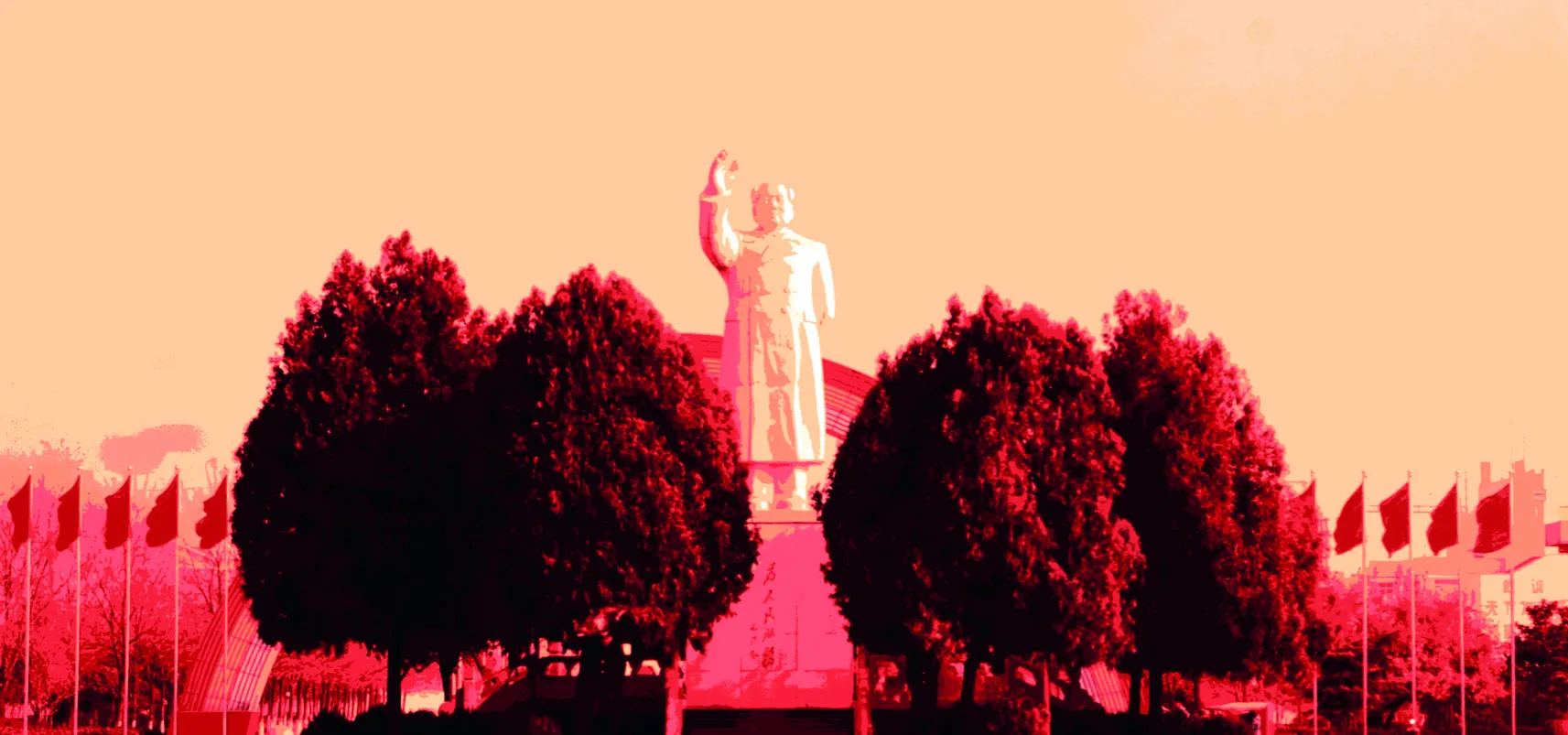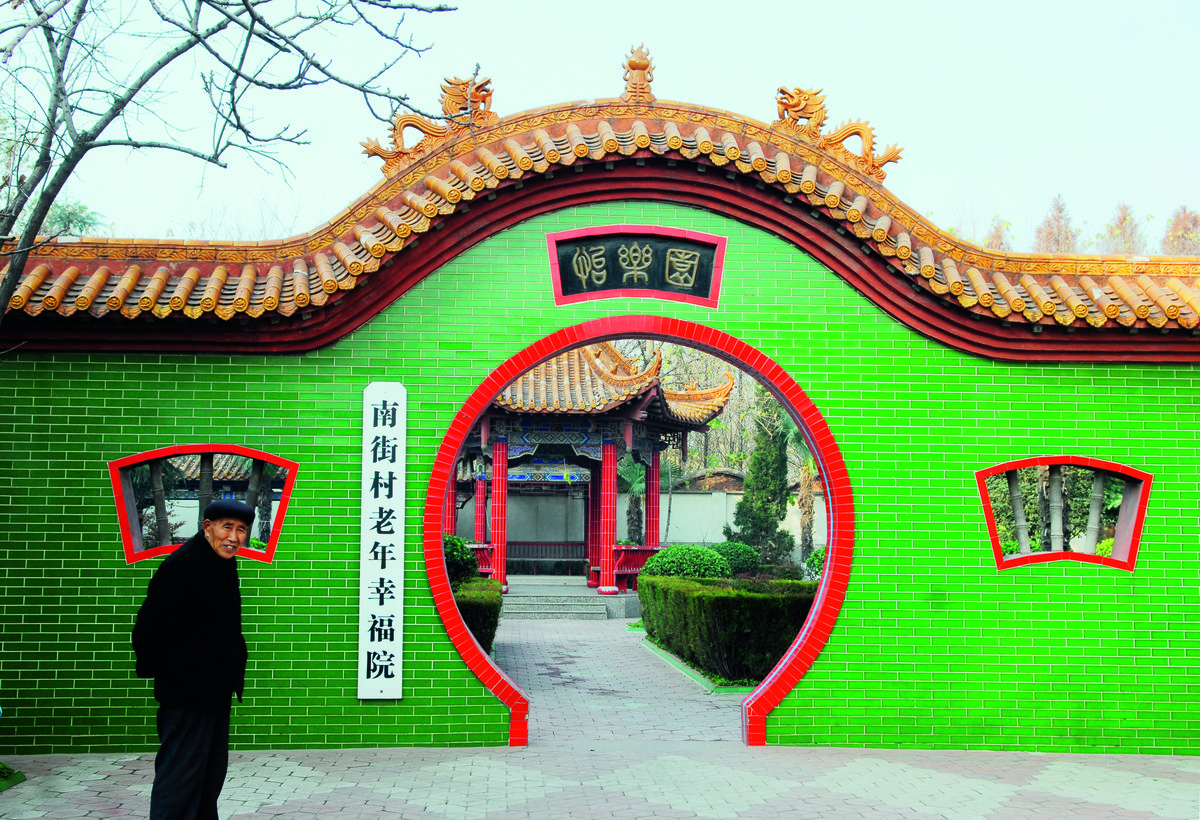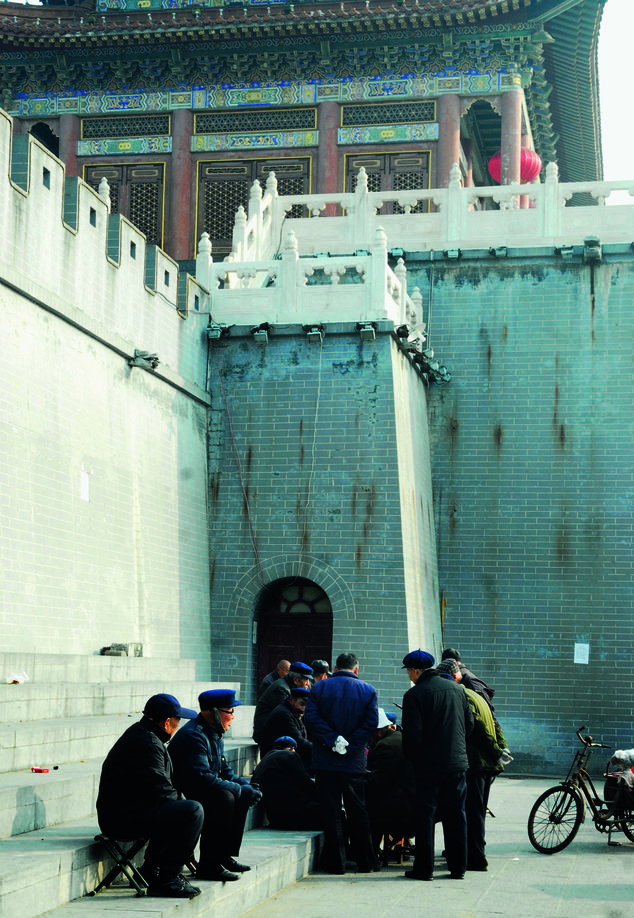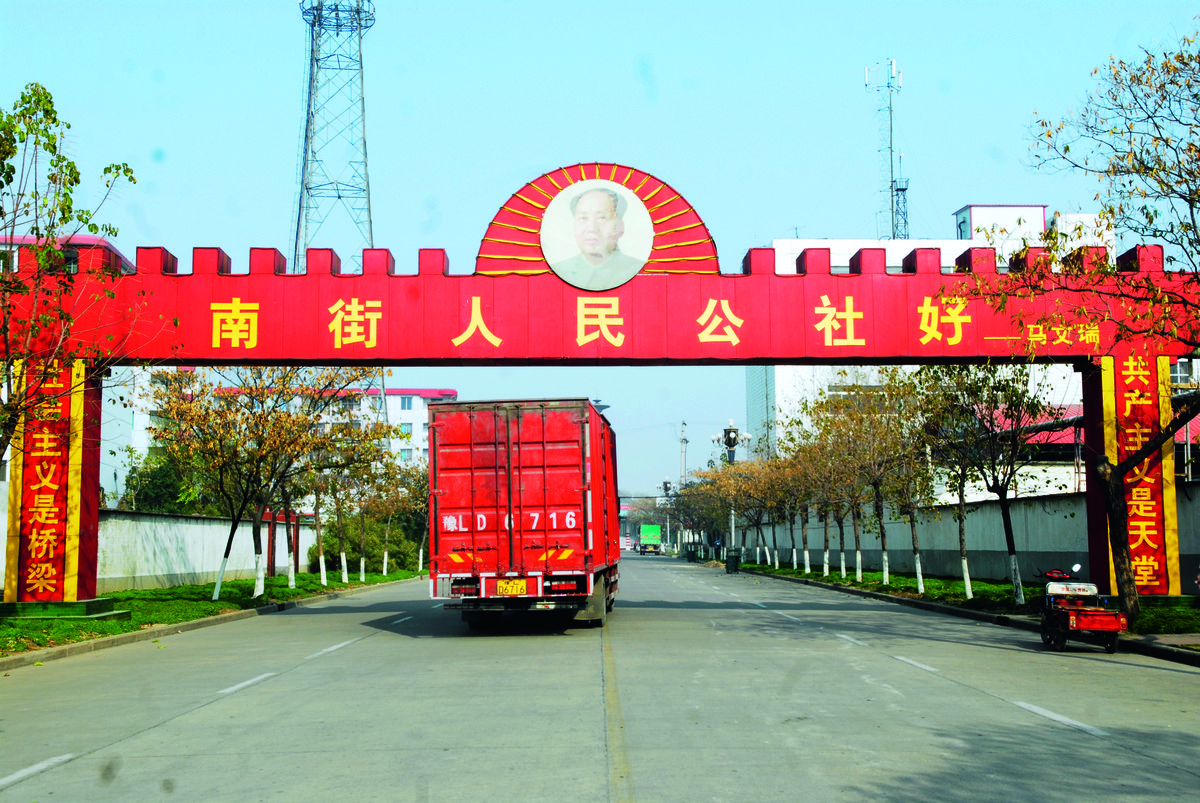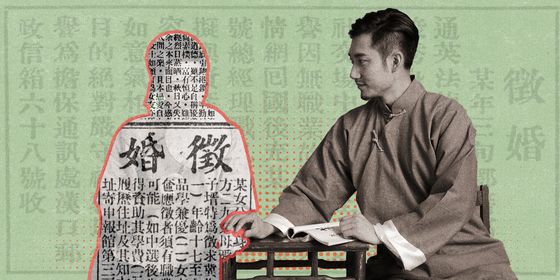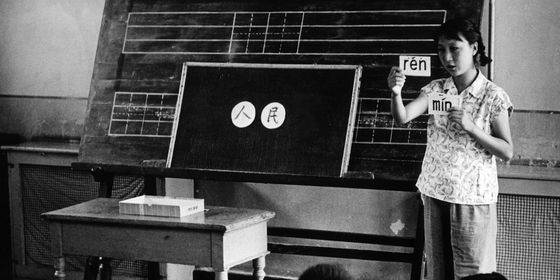We take a trip to every Maoist’s favorite travel destination: Nanjie Village
Decades ago it was common for families throughout China to place an image of Chairman Mao in the center of their home. Today this is a relatively rare sight, unless you happen to live in Nanjie village. In fact, a portrait where Mao’s smile beams from within the center of a radiant red sun is an all too common decoration for each of the village’s identical apartments. Such adornments were decided by a communal decree of the village committee, the portraits also serving as an electronic calendar and clock.
On the right of the portrait is written: “Mao Zedong is a human being, not a god.” Fair enough; however, immediately to the left, it states: “Mao Zedong Thought is better than any god.” Nanjie residents are familiar with this particular slogan: not only because they see it everywhere, but because it appears to be the guiding motto to their lives. While other parts of China went through “Reform and Opening Up” in the early 1980s, embracing the market economy, Nanjie village retained collectivization and embraced Maoism—it is now the last collective village in China.
Nanjie is a tiny place that casts a grand shadow. Part of Linying county—administered by Luohe city, Henan province, roughly 800 kilometers southwest of Beijing—the village only covers 1.78 square kilometers, housing 3,400 permanent residents. The 107 National Highway passes through the west of the village and separates it from the rest of the bustling county. One side of the highway is a typical scene you might find in any small town in a small city: grimy streets crowded with peddlers, dingy shops, and suspect-looking hair salons where young women chat away with not a pair of scissors in sight.
The opposite side of the highway is an entirely different world. Walking down the broad and not-so-subtly named Communism Avenue, it is hard to tell if you are going forward or backward in time. Everything is pristine, and a nostalgic aura infects the air. Buildings firmly in the style of the 1990s are neatly in order, red slogans stretch across complexes, and a plethora of propaganda posters paper available walls and billboards.
The heart of the village is Dongfanghong (“East is Red”) Square, on which a grand marble statue of Mao Zedong is watched by two armed guards day and night. Behind the statue stands portraits of the “Big Four”: Marx, Engels, Lenin, and Stalin, their facial hair varying in magnificence. And for background music? A speech from Mao, of course, played on a perpetual loop. The square functions in much the same way as a church might in the West: Not only do new party members take oaths here, but all new couples in the village get married in a single collective ceremony here on National Day, and bow to the Mao statue. Their wedding gifts? The Selected Works of Chairman Mao, also known as the “Little Red Book.”
Each year, up to half a million visitors from around the country (and the world) come to admire this village’s red culture as well as its lifestyle, which many villagers claim is heavenly. For starters, villagers are entitled to free medical care, housing, electricity, water, and gas. Furniture and essential electronic equipment are issued to every family. From the moment a child is born, the village arranges everything for them: free education from kindergarten to college, and even graduate school. For those who fail the college entrance exam (gaokao), the village funds their tuition at vocational school. For every villager, there is always a job waiting in one of the 26 different enterprises owned by the collective. While the outside world struggles with soaring real estate prices, medical bills, and shrinking job opportunities, all seems well in the leftist utopia that is Nanjie village.
As to how all this was achieved, Wang Hongbin, the 62-year-old Communist Party secretary of the village committee, lauds the power of Maoism: “For decades, we have been committed to Mao Zedong Thought, using it to arm and educate our people. As a result, the collective economy is developed, and we are living a fairly comfortable life with common prosperity in the near future.”
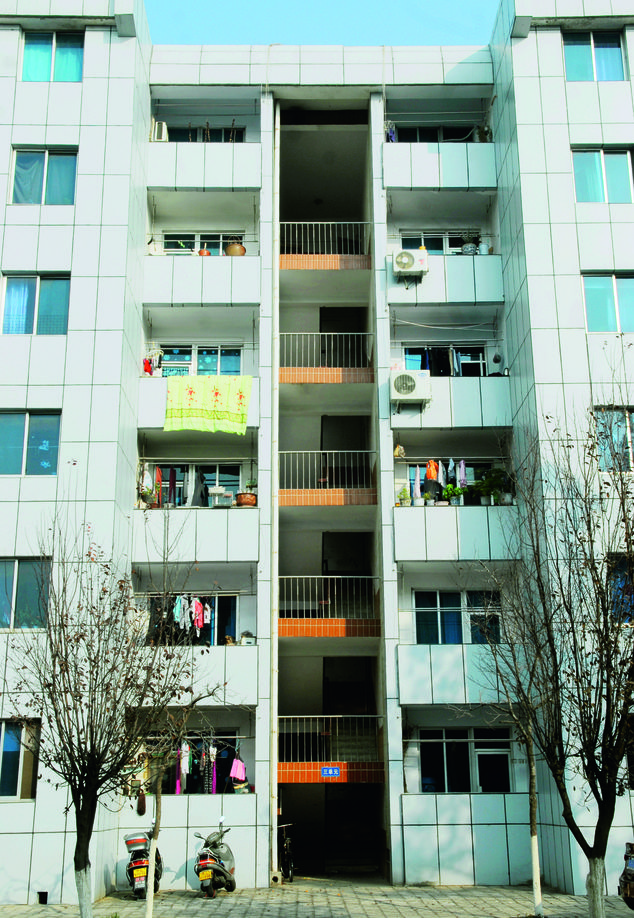
The are two models for villagers’ apartments: a 75-square-meter two-bedroom unit for two-generation families, and a 92-square-meter three-bedroom apartment for three-generation families
Despite Wang’s claims, it wasn’t really Maoism that inspired him to start the collective, but it certainly helped maintain it. Red songs such as “The East is Red,” “The Voyage Depends on the Helmsman,” and “Socialism is Good,” are broadcast daily, and everyone is encouraged to study Mao’s works. Above all, devotion to the collective is highly promoted, or what they call “the spirit of the fool”—a fool who does not care about individual gain or loss, instead devoting themselves to the good of the collective. Villagers certainly need such spirit to make peace with their work; monthly wages are usually only a few hundred yuan, regardless of their performance.
On being asked about salary, Sheng Ganyu, director of the Publicity and Education Department for Nanjie village explains to me that only 30 percent of villagers’ benefits come as direct financial compensation; the remaining 70 percent are benefits such as housing, education, food stamps, and vouchers that can be used in the market. “In order to set an example, all members of the village committee and leaders of enterprises have even lower salaries, only 250 yuan,” he says. “And they enjoy no other special treatment.”
Two hundred and fifty (二百五) is also slang for “foolish.” Therefore, the cadres’ salary is, quite intentionally, a gesture of devotion to the collective. They call themselves the “250 cadres,” serving the people wholeheartedly. Low salary does no harm to cadre motivation, says Sheng proudly. “In the distinct environment of Nanjie village where everyone is highly moral and responsible, I don’t think they will have a problem—at least most of them won’t.”
However, “it’s definitely not enough!” an employee at a sales company in Nanjie tells me. “Our food stamps are just for flour, steamed bread, and noodles; as to the vouchers, it’s never enough and we have to buy everything with money, just like everywhere else.” With a job in sales, his salary is still fixed at a couple of hundred yuan. When asked about the apparent issues of this arrangement, the employee (who wished to remain anonymous) sighs, explaining, “We don’t mention incentives because we care more about devotion.” On being asked if a different arrangement might make him more devoted, he simply answers: “This is not a problem I can discuss,” and pointed me in the direction of the village committee, “Go ask them.” For those who are less “devoted,” working outside the village is common.
“The monthly welfare is only about 60 kuai and it takes at least 300 to survive. With other spending, the salary here is simply too low,” a villager says, explaining his reason for abandoning the “heavenly” Nanjie village; instead, he operates a small business outside the village, earning a monthly income of a few thousand yuan.
If those who are inside want to get out, then those who are outside want to get in. Nanjie currently employs over 10,000 “outsiders” in its various enterprises, more than three times the number of locals. Their salaries are higher (still only 1,000 to 2,000 yuan a month), but they don’t get the other benefits. Among them is 20-year-old Zhang Yanli, who moved from an adjacent village to work as a tour guide at the local tourism company. Her job is to show visitors around Nanjie and present them with a perfect “communist community in the making,” which she is not a part of.
“Outsiders who are selected as outstanding workers for five years in a row and have worked there for 10 years can be awarded the title of ‘honorary villager,’ and they will get the same benefits as the other villagers,” she explains. Although she is not sure if she wants to stay in the village for that long, it certainly strikes her as a good opportunity. While the village creates many jobs for the area, some people express concern at such practices in a “communist collective,” comparing it to capitalism—with workers creating surpluses and decreasing value.
As to the 250-yuan salaries of the village cadres, it has long been regarded as a mere gimmick, with many villagers suspecting corruption. In 2003, village director Wang Jinzhong died of a heart attack. It has been alleged that at least 20 million yuan in cash and multiple property deeds in his name were found in a safe in his office. Villagers told a journalist from Southern Metropolis Daily that several women with small children showed up at Wang’s funeral, claiming to be his mistresses who bore his illegitimate children, asking for a share of the money. Party secretary Wang Hongbin (no relation) later denied such claims, stating that only 30,000 yuan in cash was found.
Despite suspicions, there are those in Nanjie who believe in the “250 spirit.” In 2007, Li Na, Mao Zedong’s daughter, personally donated 100,000 yuan to Nanjie, asking for it to be used to better the living conditions. In Wang Hongbin’s letter to her, he thanked her for her devotion, saying he believed it to be a great encouragement for Nanjie to continue its work for its communist haven. A little cash certainly seems to inspire devotion.
Wang has been leading the village for the past 37 years and was the paramount advocate for its creation. Back in 1980, when traditional farming was still the main livelihood for the villagers, he led the establishment of a flour mill and a brickyard, in which he personally contributed funds. The next year, when rural reform and the household contract system began, the mill and brickyard were contracted to individuals. However, the two small factories, as well as local agriculture, fail to make money; villagers chose to leave the land uncultivated and the contractors neglected to deliver profits or paychecks.
Starting in 1984, Wang decided to take back the factories and the land—a sort of micro-nationalization. On the morning of March 14, 1986, villagers gathered in front of an announcement issued by the village committee and learned that they were all in this together: All villagers would tend the land jointly, while the rest of the labor supply would be sent to work in the factories. In return, the village would provide all members with food. This marked the beginning of Nanjie as a collective.
Nanjie takes great pride in its reputation. From food, drink, and medicine, to printing, chemicals, and tourism, the collective, known as Nanjie Village Group, claimed to have an annual output value of over 1 billion yuan as early as the 1990s. It is said that the village developed at a speed faster than special economic zones such as Shenzhen. The rapid growth of the village enterprises coincided with Maoist fervor. It seems that Mao Zedong Thought has taken an effect after all, but perhaps not in the way claimed. In a village speech in 1990, Wang Hongbin said: “Right now, it’s easy for Nanjie to get a loan…Authorities of different levels all want to make a Nanjie model… Governmental funds will come our way, millions of yuan. We have to grasp every opportunity and give Nanjie a total makeover in the next two to three years.”
Wang was spot on. In the surging wave of national reform, Maoism became a reassurance against the worries of capitalist invasion. It brought him huge sums of bank loans and funding facilitated by the government. Before long, Nanjie had begun its ascent. Alongside Mao Zedong Thought, it seemed the village was also invoking the ideas of Deng Xiaoping: for Nanjie, getting rich was glorious.
Backed by loans, Nanjie did not just stop at building factories and setting up companies. Apart from the identical apartment buildings for all the villagers, public facilities in Nanjie are top-notch: five parks, a zoo, a small artificial mountain set with bridges over a moat, a large swimming center, and a grand mosque for Hui Muslims, who make up 10 percent of population. There is also a city gate tower and city walls—not bad for a place with a little over 3,000 residents. Wang Hongbin made a name for himself along the way, becoming a “national model worker” and an outstanding Party member of Henan province. He has also repeatedly been selected as a National People’s Congress representative.
All these possibilities, though, may have bewildered him: In 1999, against many objections from other members in the village committee, Wang decided to fund a study to invent a perpetual motion machine—largely considered a scientific impossibility. A few months later when the machine was “done,” three brand new Audi cars were bought for tests. After their engines were removed and the magic machine installed, nothing happened. With it, 20 million yuan went to waste. It was only four years later that Wang publicly stated that he was deceived by charlatans and expressed regret. Always a lovable figure among the villagers, he was forgiven and was never called to account for the loss.
The days of rum and honey in Nanjie lasted for a while; that is, until the loans caught up with them. At 73, Nanjie resident Zhu Gengxi enjoys the sunshine on the steps of the grand city gate but is worried about the future. “It looks well on the outside, but that’s not the truth. If only we had built all these with our own effort,” he says. “Now that we owe the bank so much money, we can’t even pay back the interest.”
Renmin University sociologist Feng Shizheng conducted a study that found that the increase in Nanjie’s output correlates exactly with its bank loans—the loans dangerously higher than the profits. At its most extreme, in 1998, the ratio was nearly seven to one. “The rapid growth of Nanjie is the result of bank loans rather than self-generation,” wrote Feng, adding, “a typical case of high growth but low efficiency.” Later, as the state-owned commercial banks went through a transformation and turned into shareholding enterprises, Nanjie was put on a blacklist for future loans due to its bad credit history. Today, the village claims to have minimized its debt to under 400 million yuan and continues to try to pay back each and every last kuai it blew.
Most ordinary residents in Nanjie get on with their daily lives without too much complaint. This does not mean they are unaware of the dissonance in which they live. But when unable to make changes to their environment, people often find ways to make peace.
Zhang Wenjian, a 58-year-old local supermarket employee, is content with his current status; his salary is not high, but it’s enough. “There is no equality in the world,” he says, “so there’s no point in comparing yourself to others. I have a job, food on my table, and a roof over my head. It’s everything I need.” And if this is what communism means to Nanjie, then the village is certainly living the dream.
Photography by Liu Jue





